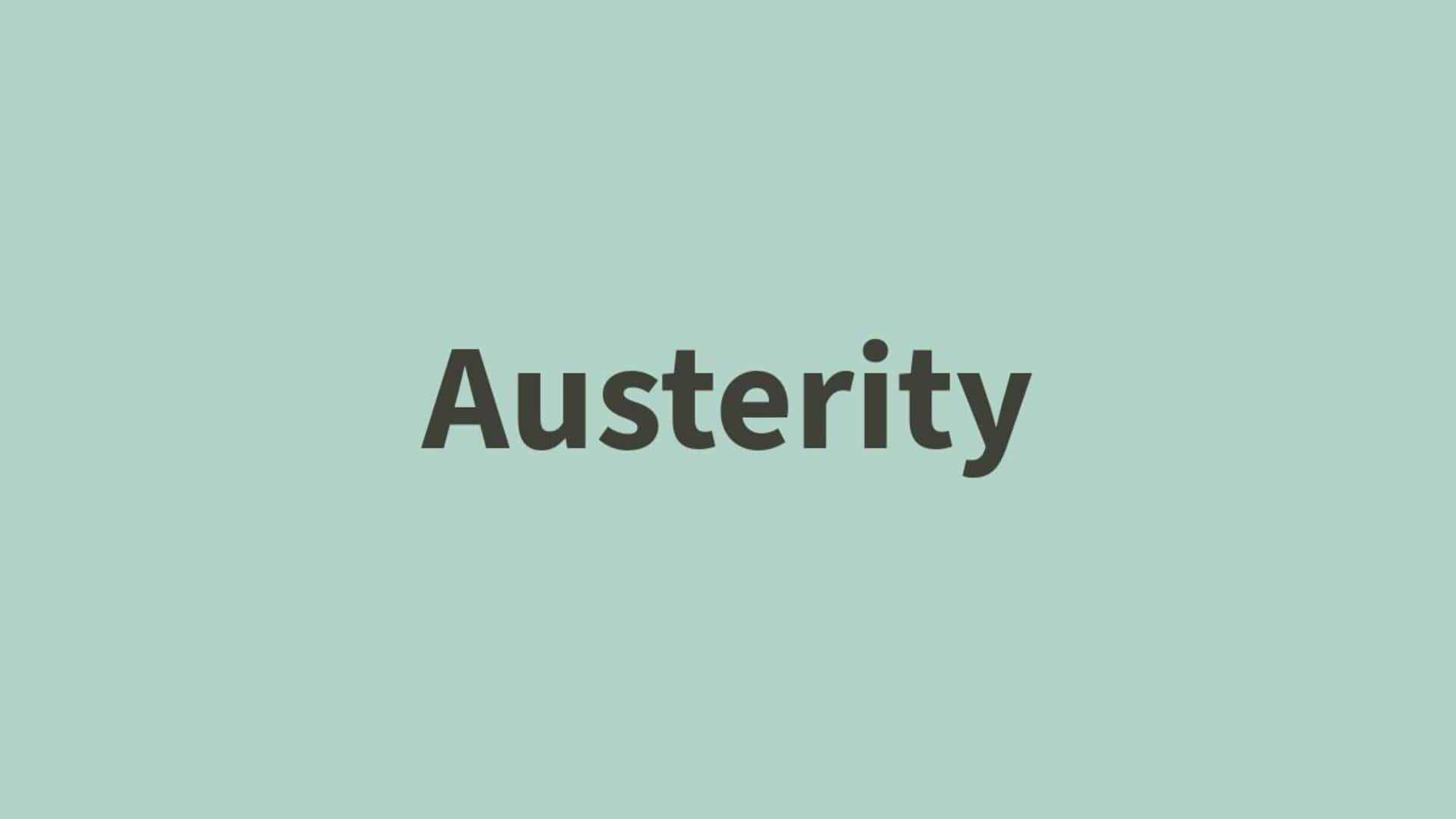
Word of the Day: Austerity
What's the story
"Austerity" is a noun that refers to strictness, simplicity, or lack of luxury. It often describes a stern or serious manner, an economic policy of cutting expenses, or a minimalist lifestyle. For example, countries may adopt "austerity" measures to reduce government debt by limiting spending during financial crises.
Origins
Origin of the word
The word "austerity" originates from the Latin austerus, meaning "severe" or "harsh," which itself comes from the Greek austēros, meaning "bitter" or "strict." Initially used to describe sternness in character or behavior, it later evolved to include notions of economic simplicity and minimalism, reflecting both personal restraint and broader fiscal policies during challenging times.
Synonyms
Synonyms for 'austerity'
Synonyms for "austerity" include severity, strictness, simplicity, frugality, and restraint. These words highlight different aspects of the term, such as the absence of luxury (frugality) or stern behavior (strictness). Depending on context, "austerity" can carry neutral, positive, or negative connotations.
Usage
Sentence usage
Here's how "austerity" can be used in sentences: "The country introduced 'austerity' measures, cutting public spending to stabilize its economy." "Her 'austerity' in decorating her home reflected her minimalist philosophy." "The monastery's lifestyle was characterized by 'austerity,' with simple meals and basic living arrangements."
Simplicity
Why use the word
"Austerity" is a versatile word that enriches descriptions of strictness, simplicity, or economic hardship. Whether discussing government policies, personal lifestyles, or artistic choices, it conveys a sense of discipline and restraint. It's especially useful in contexts requiring a more formal or precise tone.